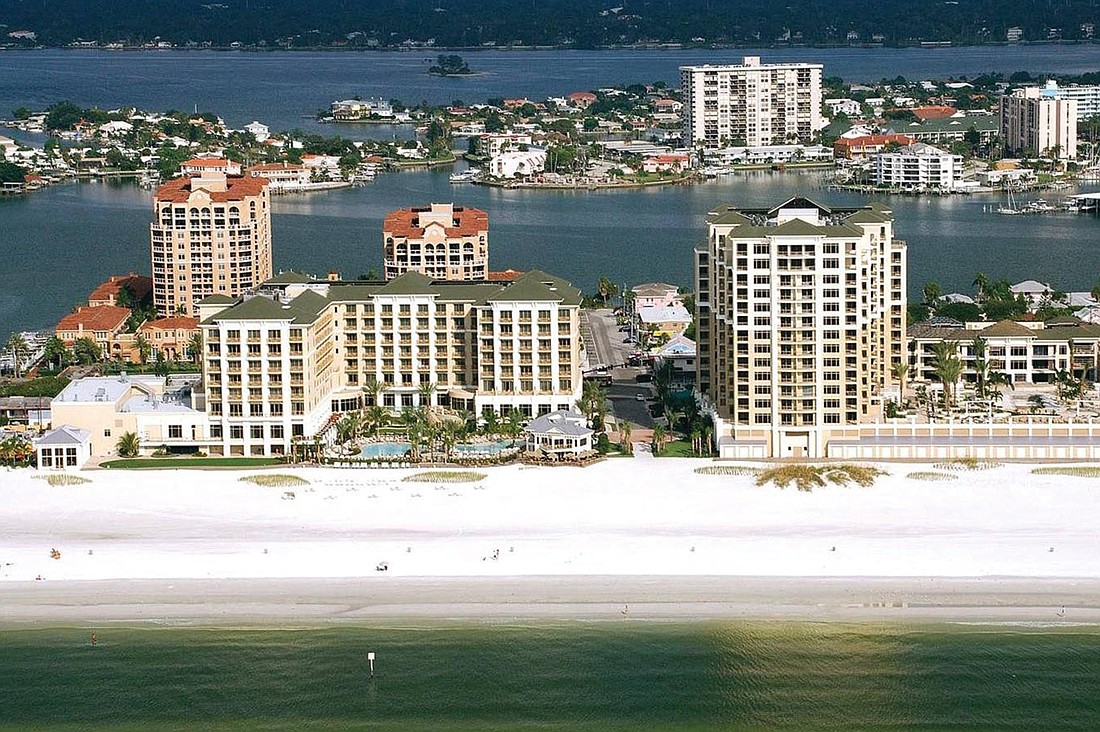- April 24, 2024
-
-
Loading

Loading

Editor’s note: In the following weeks, the Longboat Observer will profile each of the four finalists for the Colony Beach & Tennis Resort redevelopment. This is the second installment of company profiles.
John Ayres Jr. remembers the days when he used to visit the Colony Beach & Tennis Resort.
The founding partner of the Naples-based Coral Hospitality got to know longtime Colony owner Dr. Murray “Murf” Klauber and his daughter, Colony President and General Manager Katie Moulton, years ago as hoteliers in Southwest Florida and often enjoyed bringing his children to the Longboat Key resort.
“It was such a great family place,” he said. “It was always a wonderful, first-class environment.”
The Colony has now been closed for one year, and Coral Hospitality is one of four remaining candidates to redevelop the resort. Ayres thinks the Colony is in need of good problem-solvers, and problem solving is what he thinks is his company’s strength.
It formerly managed the new, $140 million Sandpearl Resort, in Clearwater Beach, when it opened in 2005.
“When we went to do the Sandpearl, nobody thought you could put a four-diamond resort on Clearwater Beach,” Ayres said. “We not only hit our performance goals, we exceeded them.”
In 2006, the company completed a two-year, $12 million renovation of Casa Ybel Resort on Sanibel Island — a property that, according to Ayres, faced many of the challenges, such as legal issues, that the Colony now faces.
And, when Credit Suisse foreclosed on the Gansevoort Miami Beach hotel in 2010, it selected Coral Hospitality to manage the resort after a nationwide search — a coup Coral Hospitality CEO Lee Weeks compared to “getting the Good Housekeeping Seal of Approval.”
Ayres founded Coral Beach Hotels & Resorts in 1988.
Coral Hospitality’s website, coralhospitality.com, states:
“A talent for locating and acquiring aging hotels in prime locations, infusing them with capital, instituting top management and conducting international marketing successfully resulted in the generation of significant profits and the return of the properties to their former significance.”
In 1999, Ayres partnered with Weeks to form the Coral Beach Club Co., a management company based on the partners’ shared philosophy that clubs are hospitality ventures that could benefit by taking on many hotel industry systems and procedures. Coral expanded to include residential management in 2002. Two years later, Coral Beach Hotels & Resorts merged with Coral Beach Club Co. to become Coral Hospitality, which, according to the website, allowed the partners “to streamline their operations into a single management entity for hotels and clubs.”
The company now manages approximately 35 luxury hotels, golf clubs and condominium associations.
And one key to the company’s success has been its ability to solve problems by adapting to market needs.
Last September, after landing the Gansevoort Miami Beach deal, Weeks told the Gulf Coast Business Review that five years earlier, the company planned to manage condo hotels — not get into the foreclosure-management side of the business. But with institutional lenders increasingly acquiring luxury resorts through foreclosure, those management services became increasingly in demand.
Also key to the company’s success has been smart growth.
“We never grew the company until we had the finances,” Weeks said.
Weeks said that the company focused on expanding its portfolio carefully, even during the boom.
“It’s not about volume,” he told The Review.
Weeks said the key to managing hotels well is to “create a culture of service.”
The key metric in the hotel business is “revenue per available room.” Known by its acronym “revpar,” it’s a product of occupancy and average daily room rate. Some hoteliers lower rates to boost occupancies, but Weeks falls squarely in the rate camp to boost revpar.
“It’s all about the rate,” he said. “The occupancy will never get you there.”
Customers at luxury resorts will pay the full rate if they perceive value, Weeks says. For example, at Coral-managed resorts, guests pay one fee that covers everything from bottled water to Internet access. The resorts maintain the rate but they don’t “nickel and dime” guests, resulting in better revpar than competitors, the company says.
Although company officials can’t discuss specific plans for the Colony, Ayres said that its ultimate goal is to restore the property to a four- diamond resort — something he believes that all involved parties want.
“We want to bring it back to the good old days,” he said. “We believe that the spirit of the Colony is still there.”